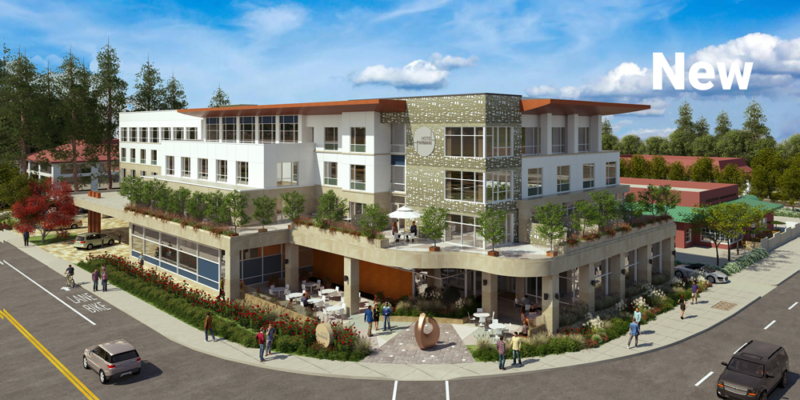Article Credit: Katie Burke
Three hotels in the works to boost city’s pipeline
The hotel on the corner of El Camino Real and Hansen Way in Palo Alto could look vastly different if plans to demolish and rebuild with nearly three times as many rooms are approved.
A 1940s Palo Alto Hotel is up for a major expansion with a proposal to nearly triple its room count. The owners of the 36-room Hotel Parmani are looking to demolish the old two-story structure to clear the way for a new, 97-room property with underground parking and an outdoor plaza.
The additional rooms would be a welcome addition to Palo Alto’s tight hotel market, which has slowly begun to loosen with new developments moving through the city’s pipeline.
“Demand in Palo Alto is huge,” Judy Kleinberg, president and CEO of Palo Alto’s Chamber of Commerce said of the city’s hotel supply. “Palo Alto started as a small college down that didn’t attract global businesses. Now we have some of the biggest in the world, and the demographics and behaviors have changed.”
Earlier this year, a pair of Marriott hotels were approved to begin construction. T2 Development’s two five-story hotels at 744-750 San Antonio Road – a Courtyard by Marriott and an AC Hotel by Marriott – will deliver a total of 294 rooms once completed.
T2 Development is hoping to have the properties operational by the end of 2018.
Even with the trio of hotels expected to help boost the city’s supply, Palo Alto still has fewer rooms available than at its peak in 2005, largely due to the former Hyatt Rickey’s more than 400 rooms being converted into 320 townhouses and single-family homes back in 2007.
While the proposal still needs an environmental review and the final seal of approval from the City of Palo Alto, the project leapt over its biggest hurdle in May when it secured an exception to the city’s special setback rule – a law that requires properties along Hansen Way be 50 feet back from the curb.
The setback rule was passed after the original Hotel Parmani was constructed in 1948 but any new construction would have had to follow it.
Calls to the owners were not returned. Sheldon Ahsing, a principal planner with M-Group working on the project, said the setback requirement would have severely inhibited the site’s development potential.
“It would have taken a lot out of the property,” Ahsing said of the plans that are now making their way through city council.

